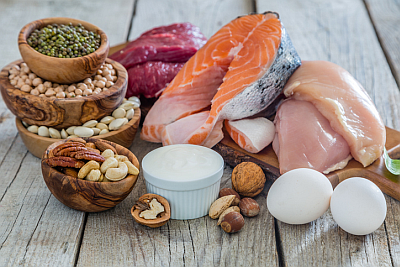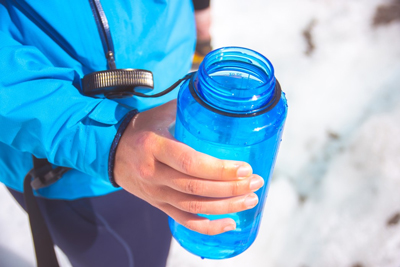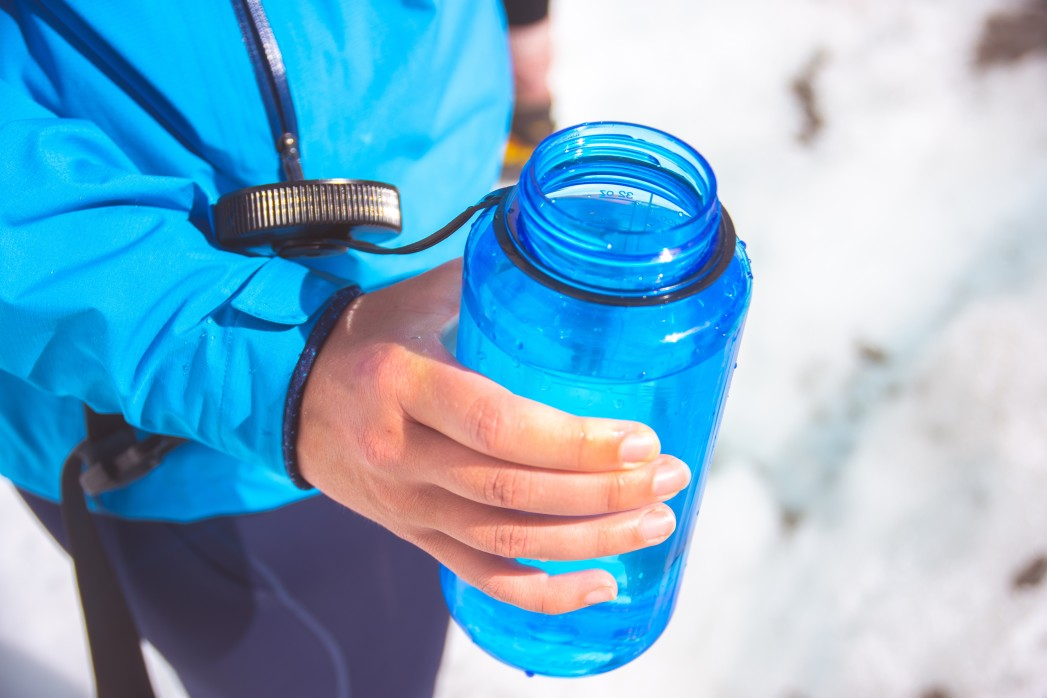Success requires more than discipline and hard work. Only with a healthy lifestyle and balanced diet can you continuously achieve peak performance. Who knows that better than professional athletes who have to consistently perform at their best in training and competitions?
You can imitate a lot of their tricks, even if you “only” occasionally go jogging, workout at the gym or cycle to work. The very thing that puts professional athletes on the podium can also help you keep fit and efficient in day-to-day life and thus achieve peak performance.
Veronika Pfeifer is a dietician, ecotrophologist (MSc) and expert for sport nutrition. She explains the foods and drinks that will keep you in best form, and help you have more fun and success in your job and free time.

The right fuel for your engine
- Why is it so important to eat a balanced diet, and how does it work?
Pfeifer: Think of your body as a kind of engine. If you fill it with the wrong fuel, it won’t reach peak performance. For peak performance, you need the perfect fuel mixture made up of the three main nutrients – carbohydrates, protein and fat – plus natural “additives” such as vitamins and minerals. Specifically, this means eating a diet that is as fresh, varied and balanced as possible. Enjoy the whole range of fruit, vegetables and whole-grain products. When it comes to meat, sausage and dairy products, it’s best to select low-fat variants. Use plant oils rather than animal fats.
- Which carbohydrates will give me the best energy?
Pfeifer: Carbohydrates are energy boosters. They quickly provide energy when you wish to achieve peak performance. Afterwards, they refill our depleted stores of energy. Thus, carbohydrate-rich meals and snacks are particularly important for keeping your mind and body efficient. Whole-grain cereals are ideal because they keep your blood sugar level steady. Whenever possible, opt for the whole-grain variants of bread, cereals, pasta and rice. For a healthy injection of energy, grab some fruit – it’s best fresh, as a compote or dried as a snack between meals. And don’t forget: Pulses such as beans and lentils contain protein and are rich in carbohydrates.

- Which fats are healthy?
Pfeifer: Healthy fats with a lot of unsaturated fatty acids are just as important for our health and fitness. When you need stamina, they supply energy. High-fat foods also provide the fat-soluble vitamins A, D, E and K as well as essential unsaturated fatty acids such as the well-known omega-3. My tip: Use plant oils such as rapeseed or olive oil. Eat a handful of nuts every now and again and sprinkle seeds such as sunflower seeds, sesame seeds and flax seeds into muesli, or over salads and soups. Avocados and fatty fish such as salmon and tuna also contain plenty of valuable fatty acids. But be careful with coconut oil: Although it is a plant oil, it contains more saturated fatty acids, which are unhealthy. It should thus not be eaten too often.
- What are the best sources of protein?
Pfeifer: Protein is the substance that muscles are made of. As such, they form the basis that allows your muscles to grow and build up strength. Proteins help muscles regenerate after training. Good sources of protein include pulses such as beans, soy, lentils, etc. but also nuts and seeds. When it comes to protein content, these plant-based sources are as good as animal products and can enrich many dishes, not just those of vegetarians and vegans. Of course, eggs, lean meat, fish and dairy products such as milk, yogurt and cheese also provide a great deal of protein.
Drink before you get thirsty
- How much fluid do we need and why?
Pfeifer: Your water balance plays a central role in your performance in sports and everyday life: Only with sufficient fluid can your body run like a well-oiled machine. Fluid loss of a mere 2% of your body weight can lead to fatigue, headaches and a slump in performance. That’s why you should always quickly replenish the fluids you lose through your breath, urine and sweat. Every day you lose around two liters of water, regaining approximately half a liter from the food you eat. That leaves around 1.5 liters that you have to drink. When it’s hot or when you’re doing sports, you can sweat out up to an additional three liters. Competitive athletes always bear this in mind and drink even before they start training to ensure their water store is replete. For endurance sports lasting over an hour, I recommend regular drinking to prevent dehydration. Otherwise it’s enough to drink a sufficient amount of water after sports. In day-to-day life, it’s best to always carry something to drink and regularly grab a glass of water.

- How useful are sports drinks?
Pfeifer: When doing up to an hour of sport, water is enough to compensate for your fluid depletion. Isotonic sports drinks are intended for competitive athletes who go all out for several hours daily. In addition to providing fluid, they also replace lost carbohydrates and electrolytes. Such sports drinks are not necessary for amateur athletes. A mixture of 1 part fruit juice to 3 parts mineral water, perhaps with a pinch of salt, will do the same job and is undoubtedly the better choice, because unlike many sports drinks it will contain no coloring, flavoring or other similar substances. If you nevertheless opt for a sports drink, ensure that it has no more than 30 calories per 100ml. Higher concentrations are not good for the stomach and will only increase your thirst rather than quench it. It’s best not to dilute sports drinks with water, which might disturb the complicated ratio of ingredients.
- What do you think of water?
Pfeifer: Wasser ist die beste Wahl, ganz egal ob gekauftes Mineralwasser oder Leitungswasser aus dem Hahn. Es erfrischt und löscht den Durst ganz ohne Kalorien. Mineralstoffreiche Wässer können den Körper sogar ganz nebenbei kalorienfrei mit wichtigen Mineralstoffen wie Calcium und Magnesium versorgen. Wer Wasser pur etwas langweilig findet, pimpt es einfach mit frischen Kräutern wie Minze, Zitronenmelisse oder Basilikum. Auch Zitrone, frische Beeren, Melone, Ingwer oder Gurke sorgen für mehr Geschmack im Glas.
Plan well for maximum performance
- What do I eat before I start?
Pfeifer: Good preparation is half the battle. A balanced diet can provide the best starting conditions before you have to deliver top performance. A carbohydrate-rich meal three to four hours before starting will fill your energy stores. Combined with high-protein foods such as lean meat, dairy products or pulses, it will keep you full for longer without lying heavy in your stomach. Ensure you also drink enough in advance. This way, your metabolism will be at its best.
- What should I do after training?
Pfeifer: After training, athletes focus particularly upon replenishing their fluids – with two or three glasses of water, for example. Only after a very long or intense training session will you require special sports drinks. Eating is the second priority. For amateur athletes and those needing to perform at work, this means: After putting in all that effort, think about drinking first and only eat when you get hungry.
- Where do I get the energy I need for peak performance and fitness?
Pfeifer: Carbohydrates and fats are the most important sources of energy necessary for any kind of performance. Whether it’s physical activity or mental effort at school, in the office or in your free time. All in all, you should get 50 to 60 percent of our energy from carbohydrates and 20 to 35 percent from fat. The rest (around 20 to 25 percent) should come from protein. Protein isn’t usually an energy supplier; it’s for building body tissue and muscle cells. However, you’ll generally find enough protein in your diet – often even too much. Therefore, athletes very rarely require additional protein.
Note: Since everyone’s health history and nutritional needs are so different, please make sure that you talk with your doctor and a registered dietitian to get advice about the diet and exercise plan that‘s right for you.

